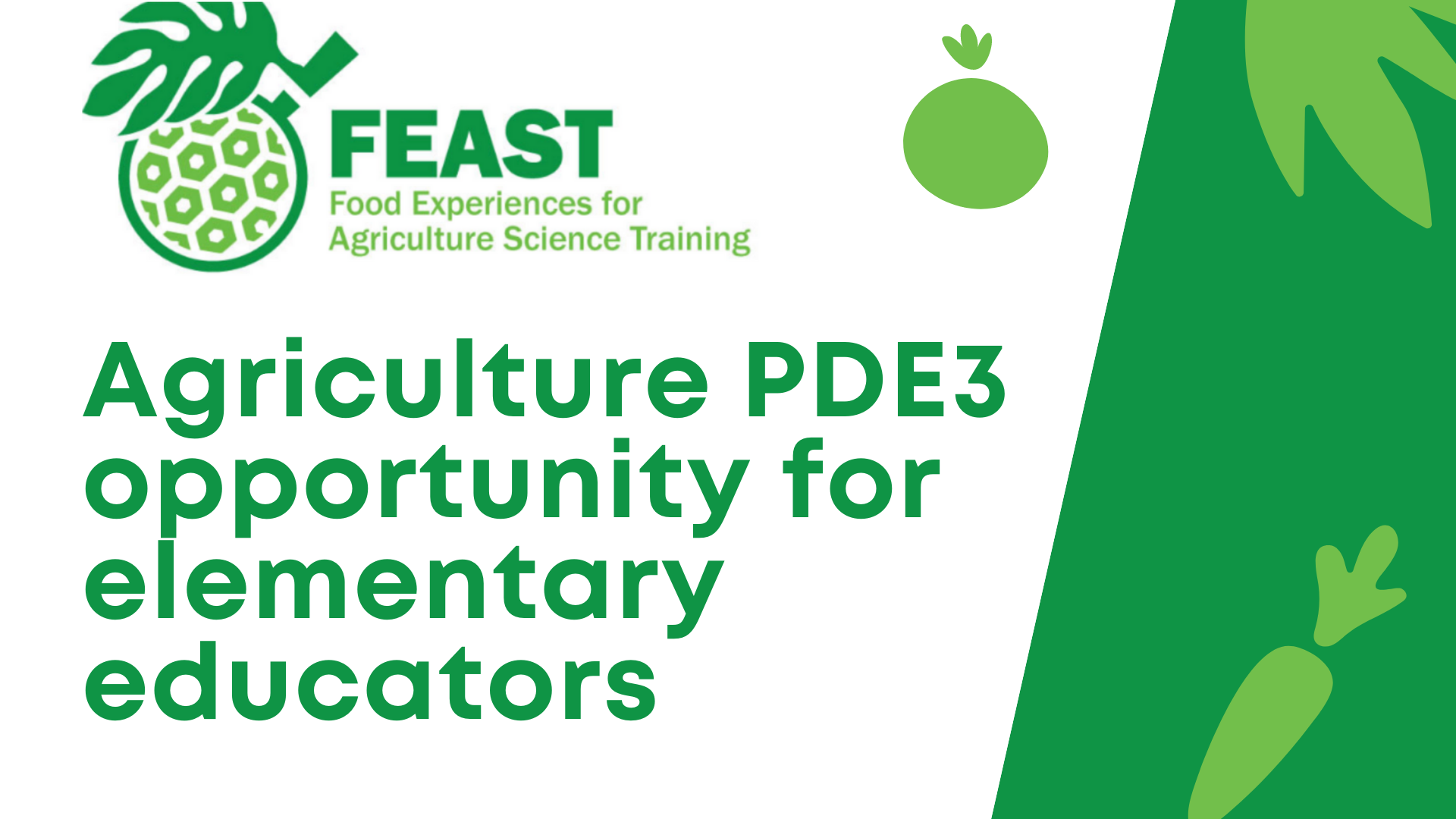The deadline for grade 3 to 5 teachers to apply is Dec. 17
Posted: December 9, 2021
Elementary teachers in grades 3 to 5 are eligible to apply for a professional development course called Food Experiences for Agriculture Science Training (FEAST) that centers on sustainable food and garden topics. During the course that runs from January to April 2022, teachers will work to create, distribute, and implement low-technology distancing learning resources for agricultural science education.
FEAST participants will use the Next Generation Science Standards crosscutting concepts to increase student sensemaking opportunities with the goal to leverage communities and families as learning resources.
The course, offered at no cost to members, is funded through a grant from the U.S. Department of Agriculture, and will be conducted as a hybrid of online/in-person instruction. Zoom sessions will take place from 4 to 5:30 p.m. every Tuesday for nine weeks starting on Jan. 18. The course comprises the following:
- Eighteen hours of synchronous instruction via Zoom
- Nine hours of asynchronous readings, video assignments, and review of curricular resources
- Four hours of writing assignments and reflections
- One in-person field trip lasting four hours. Note: The date and location of the field trip will be determined at a later date.
Final presentations will be due Mar. 8 and learning result portfolios will be due Apr. 1.
The deadline to apply for this course is Friday, Dec. 17. Applicants must apply via the Google form below and also add their name to the waitlist in PDE3. Note: Application to this course does not guarantee acceptance. All accepted participants will be notified by Jan. 3, 2022.
About the instructors
Koh Ming Wei, who has a doctorate in sustainability education, is a researcher, educational consultant, curriculum developer, māmaki farmer, and distiller. Passionate about Education for Sustainability (EfS) and garden-based learning, Koh integrates education for sustainability benchmarks, standards, and ecological principles into state and national education standards in the regions she services. Koh facilitates the development of food systems education, climate change education projects, place-and project-based teacher practica, and curriculum to build community resilience. She is an adjunct faculty member of the Antioch University New England Experienced Educators Graduate program, and offers teacher development courses for the Hawaii State Department of Education and several other organizations.
Lori Andersen is a faculty member at the University of Hawaiʻi at Mānoa and has a doctorate in educational policy, planning, and leadership. She is a science education researcher in the Curriculum Research & Development Group. Her current research focuses on place-based, problem-based science curricula for grade five. She has more than 30 years experience in science education including as a high school physics teacher and as a professor of elementary science methods. Andersen earned National Board Certification in Adolescent and Young Adult Science in 2008, with a specialization in physics. Her teaching has been recognized by national awards, such as the RadioShack National Teacher Award and the NSTA Vision of Science Award. She is passionate about improving the teaching and learning of science in pK-20 contexts to help society achieve science literacy and environmental sustainability goals.
Anderson was recently awarded $800,000 by the USDA’s National Institute of Food and Agriculture. The two-year grant will support FEAST.

